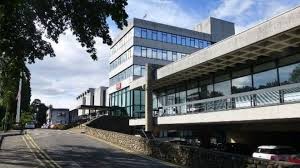- ‘Lies, damned lies etc…’ - 13th February 2026
- Missing in action - 12th February 2026
- Travel news again - 11th February 2026
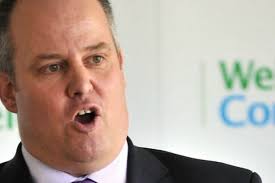
An extraordinary political row has developed with the former leader of the Conservatives in the Welsh Parliament/Senedd (WP) accusing on social media, the biggest broadcaster in Wales of a “link” with nationalist party Plaid Cymru (PC) and that it is “unhealthy”, it has emerged.
But in a highly unusual move the Director of the broadcaster under fire, BBC Cymru Wales (BBC CW), Rhodri Talfan Davies, defended on Twitter the decision to ask the Plaid Cymru leader on to a programme discussing major events, saying the Welsh Conservatives had not accepted the invitation.
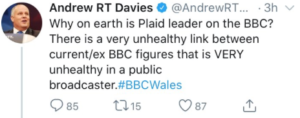
Yet in another tweet former Welsh Conservative leader in the WP Andrew RT Davies MS said he stood by his original point.
The astonishing spat over alleged links between PC and BBC CW comes hard on the heels of growing concern about figures who have joined the corporation from PC, and those that have moved in the other direction.
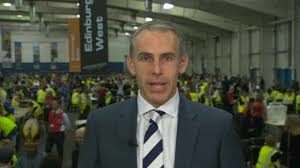
The political journalist at BBC CW Aled ap Dafydd became PC’s Director of Political Strategy and External Relations.
Top level journalists have also joined PC in the past, and politicians on the left and right in Wales have accused the corporation of being a hotbed of Welsh nationalism.
Mr ap Dafydd’s move came soon after the appointment of the former PC Chief Executive Rhuanedd Richards as Editor of BBC Radio Cymru and the Welsh language online service, Cymru Fyw.
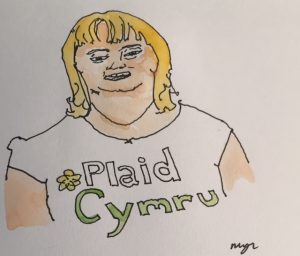
The PC MS for Ynys Mon Rhun ap Iorwerth was also formerly a leading political journalist at BBC CW, joining the corporation in 1994.
Yet it is clear that PC have been proud of their catches in the past.
Mr ap Dafydd, for example, was described by the nationalist party as “one of Wales’ most well known journalists”.
But one leading political commentator in Wales told The Eye at the time: “This is further evidence that the journey from BBC Wales to Plaid Cymru is a short one”.

Ms Richards made a short journey as well – although in the reverse direction to Mr ap Dafydd’s and Mr ap Iorwerth’s.
She was also for four years, a special adviser to former deputy first minister and Plaid Cymru leader at the time Ieuan Wyn Jones.

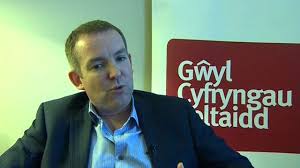
The corporation had even proclaimed some of her controversial antecedents in an internal email to staff seen by us, from Mr Davies, on her appointment.
In it he said: “A former Chief Executive of Plaid Cymru, Rhuanedd has also worked as an advisor to the Welsh Government and later as Policy Advisor to the Presiding Officer of the National Assembly for Wales”.
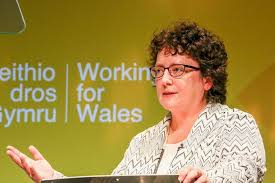
But her previous roles have hit the headlines for all the wrong reasons, and in February three years ago, it was revealed that she was to advise Plaid Cymru MS Elin Jones – who oversaw what was then Welsh Assembly proceedings – even though she had worked for the party for 10 years.
Mr Davies was central to an argument which grew up about this appointment too, and questioned how they could work effectively across party lines.
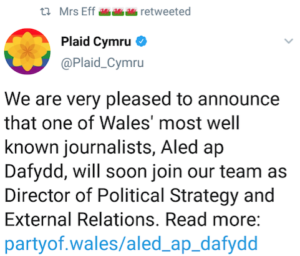
He said: “No-one could question Rhuanedd Richards’ considerable political experience, but it was gained in pursuit of a narrow, partisan agenda – as Chief Executive of Plaid Cymru”.
Five years ago Ms Richards made a contentious suggestion in the PC magazine.
She reopened the argument over whether removing computers from the Welsh Parliament chamber would improve debates.
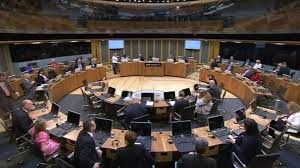
Making it clear it was her personal view, although it was published in a party magazine, Ms Richards wrote: “Who was it that said the greatest gift you can give another is the purity of your attention?
“It’s an important principle in politics as it is in life – the ability to listen and the perception that you’re listening.”
Mr Davies also lauded the past ‘achievements’ of BBC Radio Cymru (BBC RC) in the staff email: “I know Rhuanedd is determined to build on the real successes of both services”.
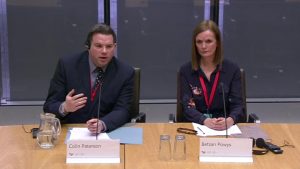
But this success is patchy to say the least, as The Eye have shown.
Her immediate predecessor, Betsan Powys, appeared with Colin Paterson, the Editor of BBC Radio Wales before Assembly Members, as they tried to defend the appallingly low audience figures for their stations and to those watching failed abysmally.
One radio fan who saw the proceedings before the Parliament’s Culture, Welsh Language and Communications Committee was not impressed. He told The Eye: “The whole meeting was waffle”.

The BBC website interpretation of this appearance was rather different and seemed to concentrate on securing Welsh news opt outs on Radios 1 and 2 rather than attending to the crucial issue of the Editors’ stations lack of appeal.
 Yet it seems from the point of view of leading politicians there are other crucial issues to concentrate on too – the ‘link’ between a main broadcaster in Wales and a nationalist party.
Yet it seems from the point of view of leading politicians there are other crucial issues to concentrate on too – the ‘link’ between a main broadcaster in Wales and a nationalist party.
Our Editor Phil Parry’s memories of his astonishing lengthy award-winning career in journalism as he was gripped by the incurable disabling condition Hereditary Spastic Paraplegia (HSP), have been released in a major new book ‘A GOOD STORY’. Order the book now!
If you need something to keep the children entertained during these uncertain times (in Welsh) try Ffwlbart Ffred about the amusing stories of Ffred and his pet








